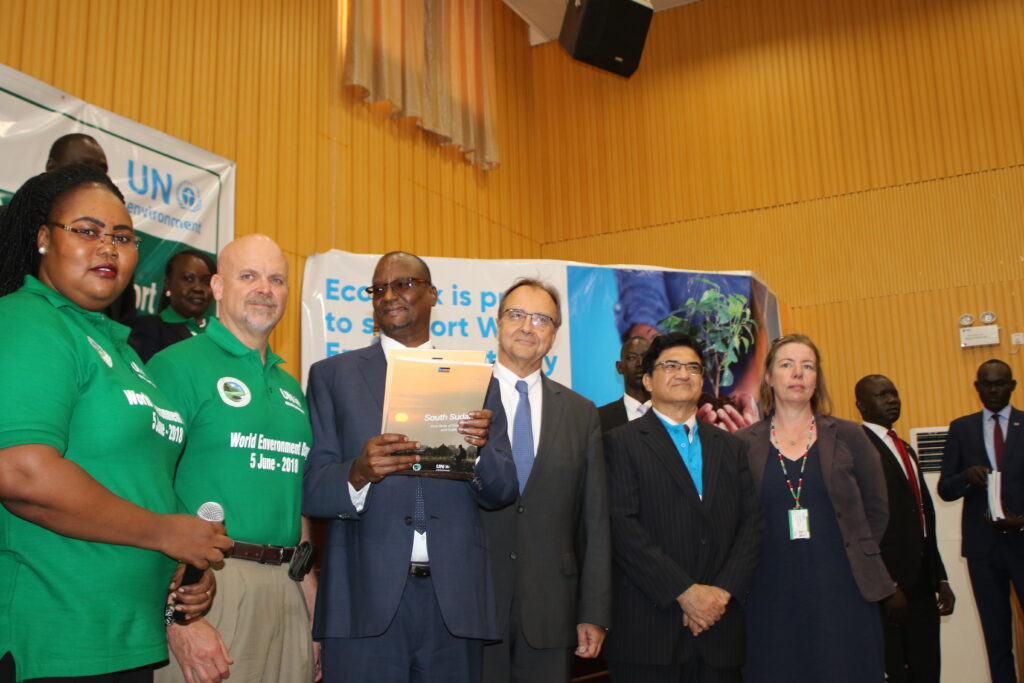Competition over access to pasture, water, fuel wood, and productive farmland – between pastoralists and farmers, and communities and clans – could intensify conflicts and forced migration within and beyond South Sudan, according to the South Sudan first State of the Environment and Outlook Report, launched on 5 June.
UN Environment in partnership with the national Ministry of Environment and Forestry and other line ministries and stakeholders launched South Sudan’s first State of the Environment and Outlook Report (SoER) in commemoration of the World Environment Day on 5 June in Juba.
The event was attended by over 300 participants including eight national ministers, members of the diplomatic missions, heads of UN agencies, NGOs, academia, civil society organizations, the media and school children.
Speaking at the event, the First Vice President, Taban Deng Gai, who was the guest of honour, admitted that indeed the country is struggling with environmental challenges including plastic pollution.
He also said that the government has plans to address recurrent environment issues through the adaptation of reduction, reuse, recycle and resource management.
“The government will take all necessary measures to ensure participation in the management and conservation of the environment, conduct impact assessment and audit, and put in place adequate monitoring and evaluation systems. We will also adopt the 4 Rs; Reduction, Reuse, Recycle and Resource management," he said.
The Minister of Environment, Josephine Napwon Cosmas urged all stakeholders including line ministries and the general public to take responsibility of the environment.
“This year's theme invites all stakeholders to make changes to reduce the heavy burden of plastic pollution on the environment. Caring for our environment is everyone's responsibility," she emphasized.
The UN Special Representative of the Secretary General, David Shearer, asked the government and partners to address the current conflict alongside the environment as some conflicts in South Sudan are as a result of competition over natural resources.
"We focus a lot on the peace agreement and building durable peace in South Sudan. However, we can't achieve this in isolation of sustainable environment and enabling legal frameworks in place," he said.
Attending the event was UNEP’s Director, Policy and Programme, Gary Lewis, who pledged to support existing coordination mechanisms and provide technical skills to partners to address environmental challenges.
"We stand ready to provide support through existing coordination mechanisms and skills at our disposal, to work with the government and other partners to address environmental issues in the country." he stated.
The UN Environment Country Manager for South Sudan, Arshad Khan in his remarks highlighted the link between environmental degradation and climate change shocks with the social and economic issues and illustrated example how easily climate shocks like droughts and floods can turn into humanitarian crises in South Sudan.
The event was concluded with a tree planting session along the ministries road.




